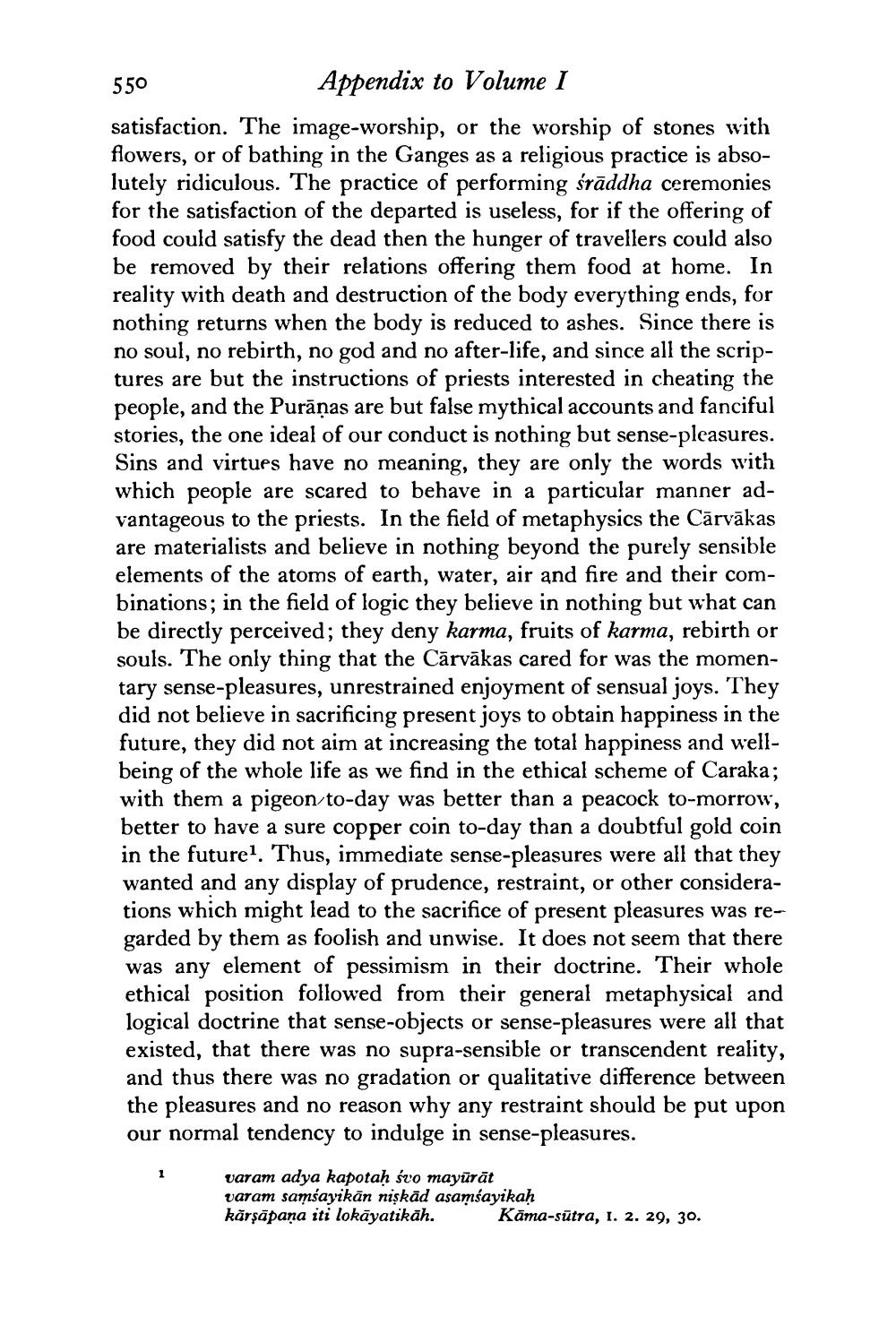________________
Appendix to Volume I
satisfaction. The image-worship, or the worship of stones with flowers, or of bathing in the Ganges as a religious practice is absolutely ridiculous. The practice of performing śraddha ceremonies for the satisfaction of the departed is useless, for if the offering of food could satisfy the dead then the hunger of travellers could also be removed by their relations offering them food at home. In reality with death and destruction of the body everything ends, for nothing returns when the body is reduced to ashes. Since there is no soul, no rebirth, no god and no after-life, and since all the scriptures are but the instructions of priests interested in cheating the people, and the Purāņas are but false mythical accounts and fanciful stories, the one ideal of our conduct is nothing but sense-pleasures. Sins and virtues have no meaning, they are only the words with which people are scared to behave in a particular manner advantageous to the priests. In the field of metaphysics the Cārvākas are materialists and believe in nothing beyond the purely sensible elements of the atoms of earth, water, air and fire and their combinations; in the field of logic they believe in nothing but what can be directly perceived; they deny karma, fruits of karma, rebirth or souls. The only thing that the Cārvākas cared for was the momentary sense-pleasures, unrestrained enjoyment of sensual joys. They did not believe in sacrificing present joys to obtain happiness in the future, they did not aim at increasing the total happiness and wellbeing of the whole life as we find in the ethical scheme of Caraka; with them a pigeon to-day was better than a peacock to-morrow, better to have a sure copper coin to-day than a doubtful gold coin in the future1. Thus, immediate sense-pleasures were all that they wanted and any display of prudence, restraint, or other considerations which might lead to the sacrifice of present pleasures was regarded by them as foolish and unwise. It does not seem that there was any element of pessimism in their doctrine. Their whole ethical position followed from their general metaphysical and logical doctrine that sense-objects or sense-pleasures were all that existed, that there was no supra-sensible or transcendent reality, and thus there was no gradation or qualitative difference between the pleasures and no reason why any restraint should be put upon our normal tendency to indulge in sense-pleasures.
550
1
varam adya kapotaḥ śvo mayurāt
varam samsayikān niṣkād asamśayikaḥ kārṣāpaṇa iti lokāyatikāh.
Kama-sutra, I. 2. 29, 30.




